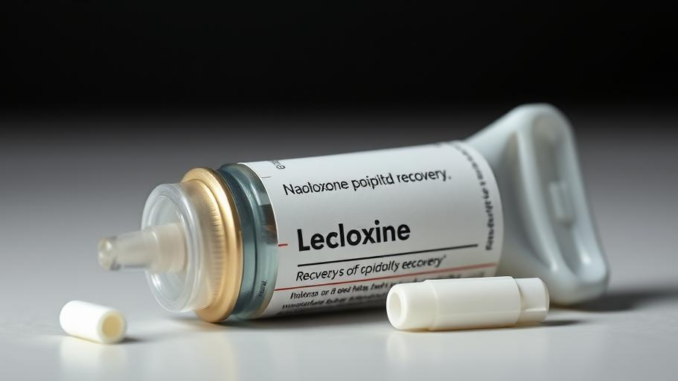
Summary
Griswold, Connecticut, is tackling the opioid crisis head-on with an innovative program providing care packages to overdose survivors. These packages include naloxone and a prepaid phone to connect individuals with recovery coaches. This initiative aims to bridge the gap between emergency care and long-term recovery support, offering a lifeline to those struggling with addiction.
** Main Story**
Griswold’s Overdose Care Packages: A Lifeline to Recovery
In the quiet town of Griswold, Connecticut, a groundbreaking initiative is taking shape, offering a beacon of hope amidst the opioid crisis. The town is implementing a program that provides care packages to individuals who have experienced a drug overdose, aiming to connect them with vital recovery resources and support. These packages contain naloxone, the life-saving overdose reversal medication, and a prepaid cell phone to facilitate communication with recovery coaches. This program demonstrates Griswold’s proactive approach to addressing addiction, focusing on providing immediate support and guidance during a critical window of opportunity.
Connecting the Dots: From Overdose to Recovery
This innovative program is a collaborative effort between Griswold PRIDE, a local organization dedicated to substance abuse prevention, and Reliance Health, a provider of mental health and addiction services. Funding for the initiative originates from opioid settlement funds allocated to the town. Paramedics from American Ambulance Service distribute the care packages to overdose survivors upon transporting them to the hospital. The prepaid phone within the package allows recovery coaches at Reliance Health to contact individuals after they leave the emergency room. This timely intervention offers a vital link to recovery resources, providing education about treatment options and connecting individuals with the support they need.
Why This Matters: Bridging the Gap in Care
The Griswold program addresses a significant gap in the continuum of care for overdose survivors. Often, individuals leave the emergency room after an overdose without adequate resources or connections to long-term support. This program intercepts individuals at a crucial moment, offering immediate access to recovery coaches who can guide them toward treatment and support services. This approach aims to prevent repeat overdoses and foster lasting recovery. The program’s focus on connecting individuals with recovery coaches is particularly significant, as these coaches provide personalized support and guidance throughout the recovery journey. They help individuals navigate the complexities of treatment, access resources, and build a strong foundation for long-term sobriety. The prepaid phone acts as a direct line to this support, ensuring that individuals have access to assistance when they need it most.
Beyond Griswold: A Model for Other Communities
The care package program in Griswold holds promise as a model for other communities grappling with the opioid crisis. Its innovative approach, utilizing readily available resources like naloxone and prepaid phones, offers a cost-effective and impactful way to connect overdose survivors with essential recovery support. By replicating this program, other towns and cities can strengthen their response to the opioid epidemic and offer a lifeline to those struggling with addiction. As opioid settlement funds continue to flow into communities, programs like this represent a crucial investment in saving lives and fostering long-term recovery. By proactively reaching out to overdose survivors and connecting them with the support they need, Griswold is setting an example for other communities seeking to make a meaningful impact on the opioid crisis.
Further Insights into Addiction Recovery Programs:
- Medication-Assisted Treatment (MAT): Combines medications with counseling and behavioral therapies to treat substance use disorders, particularly opioid addiction. MAT can significantly reduce cravings and withdrawal symptoms, improving the chances of sustained recovery.
- Residential Treatment Programs: Provide intensive, structured treatment in a live-in setting. These programs offer a range of therapies and support services, including individual and group counseling, detoxification, and life skills training.
- Outpatient Treatment Programs: Allow individuals to live at home while attending therapy and counseling sessions at a treatment facility. Outpatient programs vary in intensity and frequency, offering flexibility for those who can maintain their daily routines.
- Recovery Support Groups: Offer peer support and guidance for individuals in recovery. Groups like Alcoholics Anonymous (AA) and Narcotics Anonymous (NA) provide a sense of community and accountability, helping individuals maintain sobriety.
These are just a few examples of the various addiction recovery programs available. Finding the right program depends on individual needs and circumstances. Consulting with a healthcare professional or addiction specialist is crucial in determining the most appropriate course of action.


Be the first to comment